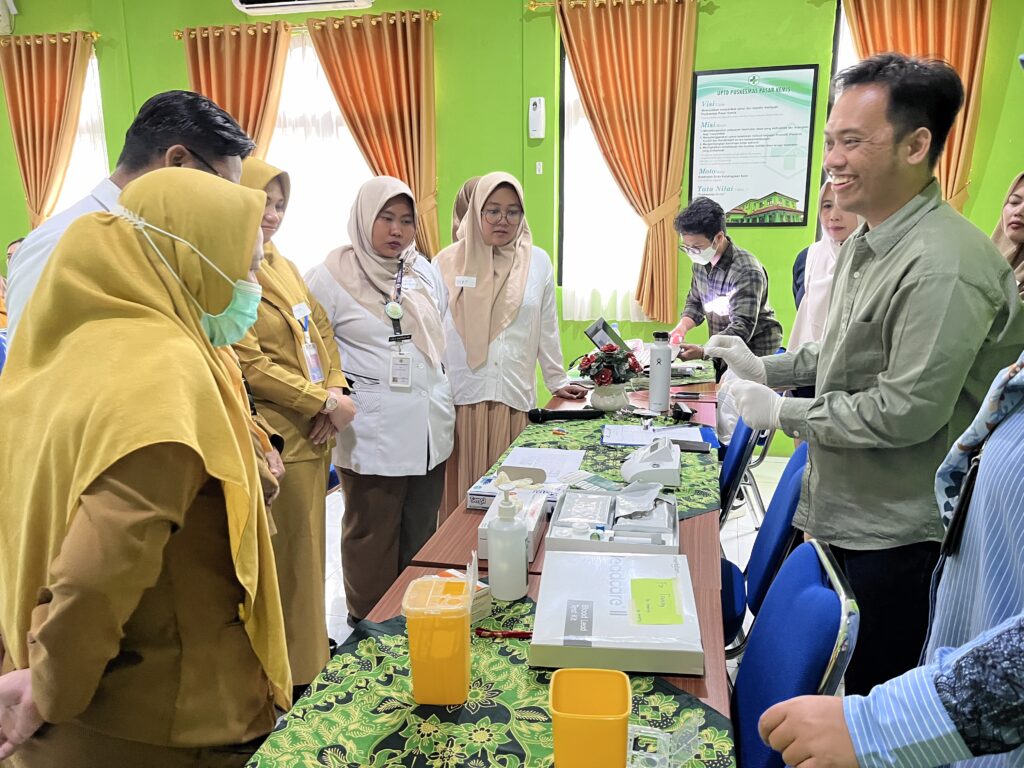
In a critical step toward addressing childhood lead poisoning in Indonesia, Vital Strategies, in collaboration with the National Research and Innovation Agency, the Ministry of Health and Pure Earth Indonesia, has formed the Blood Lead Surveillance Working Group. This collaborative effort is part of a program to strengthen Indonesia’s capacity to monitor and reduce lead exposure among children aged 1 to 5.
The program, Strengthening Health System to Reduce Lead Exposure, is being piloted in 12 districts and cities across six provinces: East Java, Central Java, South Sumatra, Lampung, Bali and West Nusa Tenggara. Through this pilot, the working group aims to build local testing capacity, generate national data and empower communities to take preventive action against lead poisoning.
From April 14 to 17, 2025, the working group conducted its first pilot survey in Tangerang to test tools and procedures. Trained community health workers collected blood samples from children using finger-prick tests and analyzed them with the LeadCare II Analyzer, a portable, on-site device. A subset of children also provided venous blood samples to validate the accuracy of the capillary test results. Venous samples provide a larger, cleaner blood sample, reducing the chance of contamination or error, thereby strengthening the scientific foundation of this surveillance approach.
As the technical muscle of this program, Vital Strategies leads the working group in conducting community-based mobilization through the following efforts:
- Training puskesmas (community health center) health workers to understand the risks of lead exposure and use effective communication tools to engage parents. These health workers are key to encouraging community participation in the blood lead surveillance program, which involves both blood sampling and environmental assessments.
- Training the puskesmas health workers to use the LeadCare II device, a portable analyzer widely used to assess blood lead levels on-site.
- Equipping health workers with training to identify lead exposure risk factors through interviews with parents and caregivers, thereby supporting more effective risk assessments.
The initiative comes at a crucial time. More than 8 million children in Indonesia are estimated to have blood lead levels above 5 micrograms per deciliter (µg/dL)—which exceeds the World Health Organization’s guidelines for action. Lead, a potent neurotoxin, silently harms children’s development, even at low levels of exposure. In Indonesia, lead poisoning is linked to an economic loss of nearly US$24 billion annually due to its impact on children’s IQ and potential.
Despite these sobering numbers, there is hope. By strengthening community knowledge and equipping health workers with the right tools and data, the blood lead surveillance initiative represents a vital first step toward ending childhood lead poisoning in Indonesia, protecting the health and future of millions of children.
To learn more about Vital Strategies’ Childhood Lead Poisoning Prevention work, visit: www.vitalstrategies.org/programs/childhood-lead-poisoning-prevention/